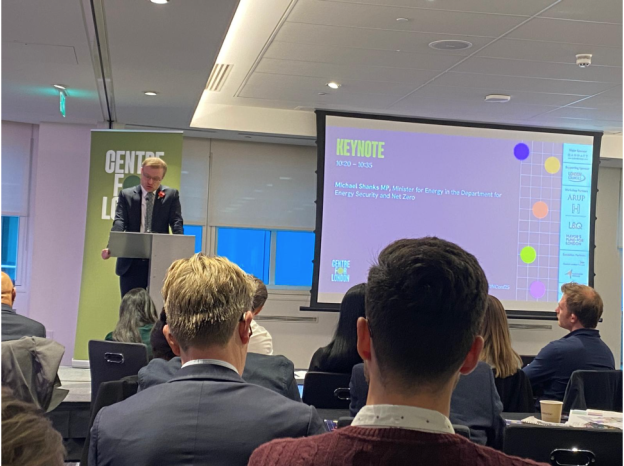It was good to see yesterday how keen professional were for the decarbonising of London, as it is committed to achieving net zero by 2030. The Mayor, London boroughs and local partners are driving action on housing retrofit, clean transport, and green infrastructure. However, l can not help but think current national regulations and fiscal rules limit local delivery. With existing powers, London government can influence only about half of the emissions reductions required. To bridge this gap, specific powers and funding flexibility must be devolved from central government.
So you will find below a list of key powers and policy asks for London from Central government.
With Planning & Building Standards, devolve power to set higher local energy performance standards for new developments and refurbishments. Simplifying planning for solar PV, EV charging, and retrofits to fast-track local decarbonisation.
With Heat Networks & Local Energy Systems, grant statutory powers to designate Heat Network Zones and require building connections. So as to enable local and community energy suppliers through simplified licensing and local energy trading rights.
With Transport & Streets, extend powers for zero-emission zones, bus franchising, and road user charging to deliver a fully zero-emission public transport network by 2030 particularly clarify authority over kerbside assets for EV and micro-mobility infrastructure rollout.
With Homes & Retrofit, empower boroughs to enforce higher energy efficiency standards in the private rented sector. Providing long-term retrofit funding and borrowing flexibility for council-led and community retrofit programmes.
With Fiscal & Financing flexibility, devolve multi-year capital and revenue funding for net zero programmes. So as to permit green municipal borrowing and local climate bonds, supported by partial business rate retention or local levies.
With Data & Coordination, mandate open access to energy and building data for planning and heat zoning. So as to create a statutory duty for local climate coordination, aligning housing, transport, and energy actions.
The expected outcomes of all this devolution, is faster, cheaper decarbonisation aligned with national targets which should help unlocks £10–15 billion in private investment and 250,000 green jobs by 2030. Thus reducing the long-term national subsidy requirements.
This call to action should include a commit to a Net Zero Local Powers Settlement for London by 2026; embed heat zoning and local energy powers in forthcoming legislation and finally establish a joint GLA–DLUHC–DESNZ task force to agree a devolution roadmap
